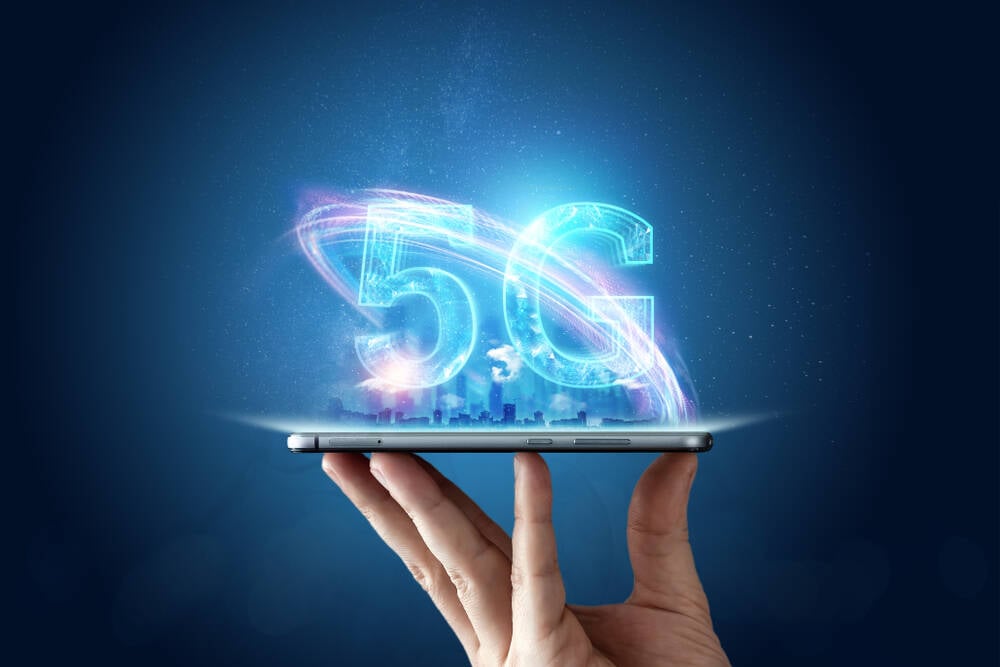South Korea's Biggest Mobile Telco Says 5G Has Failed To Deliver On Its Promise

SK Telecom, South Korea's dominant mobile carrier and sibling of chipmaker SK hynix, has declared that 5G was over-hyped, has under-delivered, and has failed to deliver a killer app.
The telco offered that assessment in a recent white paper [PDF] titled "5G Lessons Learned, 6G Key Requirements, 6G Network Evolution, and 6G Spectrum."
The paper opens with an unflattering assessment of 5G, which the authors recall being sold as an enabler of autonomous driving, unmanned aerial vehicles (UAM), extended reality (XR) and digital twins. Those applications were possible, but did not succeed due to a combination of "device form factor constraints, immaturity of device and service technology, low or absent market demand, and policy/regulation issues." The performance of 5G networks was not the issue, the paper argues.
A variety of visionary services were expected, but there was no killer service
The telco argued that some of the goals set out by the UN's international standardization org ITU-R for 5G were met, but many tasks are still far from completion four years into the technology's commercial deployment. Those goals were meant to be realized in the long term – but that expectation was not accurately conveyed to consumers, leading to "excessive expectations."
It's easy to see how consumers might expect a massive step change – as was the case when 3G evolved into LTE and the mobile internet became vastly more usable. But 5G consists of incremental improvements continually rolling out on top of existing technology – meaning users will be less likely to notice them.
- Indonesia blocks Musk's X.com over its X-rated past
- 80% of execs regret calling employees back to the office
- Telecom giants dial up the heat on suppliers: It's not you, it's your CO2
- OpenAI's ChatGPT has a left wing bias – at times
Despite these challenges, 5G has delivered some wins. SK Telecom's paper pointed to a 70 percent reduction in data cost per gigabyte compared to LTE. Customers on 5G therefore use 50 percent more data than those tied to the previous generation standard.
It is necessary to design an architecture that can maintain service quality, including speed experienced by customers, at a level equal to or higher than that of existing services
The white paper suggests 6G – which is already in development and expected to debut in 2030 – can avoid the mistakes made with 5G.
For instance, the telco argues that all participants in the ecosystem should work together – which could result in expanded use cases, better spectrum management, more use of open interfaces, and simpler architecture options.
By being very clear about which products and services 6G can enable, stakeholders can best set goals for the standard and prevent fragmented architecture – all while managing public expectations about the kind of services that will result.
"It is necessary to design an architecture that can maintain service quality, including speed experienced by customers, at a level equal to or higher than that of existing services," the paper suggests.
It's 2023 so there's gotta be some AI
The success of 6G, SK Telecom's paper argues, will also depend on the development of AI and sensing technology, without which the technologies that will lean on this next generation of cellular broadband networks won't perform. Many of those technologies are just more developed versions of ones already cited for 5G – like autonomous driving, XR, UAM, and digital twins. For example, Level 4 full autonomous driving will require 6G.
SK Telecom suggested that it plans to take the lead in developing 6G technology, and contribute to Korea becoming a global ICT leader. Other leaders include the US and China – the latter of which began its 6G-related research in 2017. Japan and the EU are also making their own efforts.
But not everyone is focused on 6G. According to the Global System for Mobile Communications Association (GSMA), worldwide 5G consumer connections surpassed one billion at the end of 2022 and are expected to reach two billion by the end of 2025.
That growth is to come from markets in Asia Pacific and Latin America – like Brazil and India, who have just started their 5G journeys.
And for all the doom and gloom on 5G, GSMA declared it "the fastest generational roll-out, when compared to 3G and 4G" – which really ought to count for something. ®
From Chip War To Cloud War: The Next Frontier In Global Tech Competition
The global chip war, characterized by intense competition among nations and corporations for supremacy in semiconductor ... Read more
The High Stakes Of Tech Regulation: Security Risks And Market Dynamics
The influence of tech giants in the global economy continues to grow, raising crucial questions about how to balance sec... Read more
The Tyranny Of Instagram Interiors: Why It's Time To Break Free From Algorithm-Driven Aesthetics
Instagram has become a dominant force in shaping interior design trends, offering a seemingly endless stream of inspirat... Read more
The Data Crunch In AI: Strategies For Sustainability
Exploring solutions to the imminent exhaustion of internet data for AI training.As the artificial intelligence (AI) indu... Read more
Google Abandons Four-Year Effort To Remove Cookies From Chrome Browser
After four years of dedicated effort, Google has decided to abandon its plan to remove third-party cookies from its Chro... Read more
LinkedIn Embraces AI And Gamification To Drive User Engagement And Revenue
In an effort to tackle slowing revenue growth and enhance user engagement, LinkedIn is turning to artificial intelligenc... Read more

